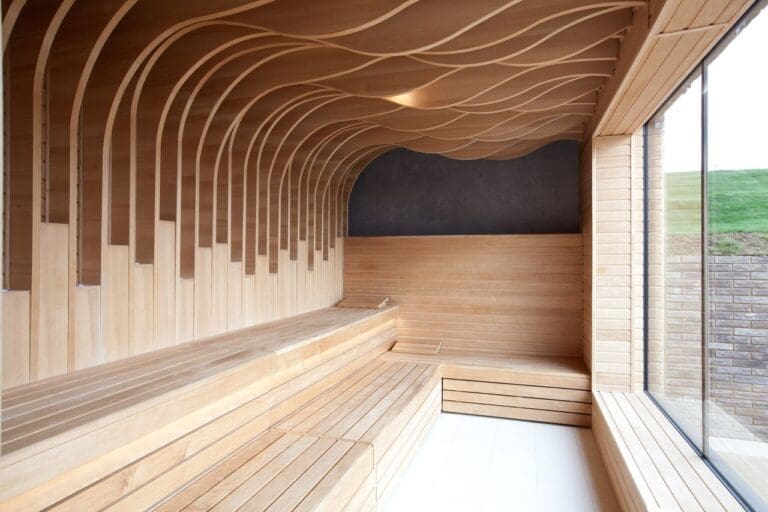 Of all the industries hit by COVID-19, the hotel real estate market was the one that nearly received a knockout blow. With so few people staying in hotels and not a lot of money to travel, hotel real estate screeched to a halt and still hasn’t recovered to pre-pandemic numbers.
Of all the industries hit by COVID-19, the hotel real estate market was the one that nearly received a knockout blow. With so few people staying in hotels and not a lot of money to travel, hotel real estate screeched to a halt and still hasn’t recovered to pre-pandemic numbers.
Unfortunately, it doesn’t seem like commercial real estate agents are going to put all their chips on the table anytime soon. 2020 and 2021 are considered lost years in the hotel industry.
With lost years comes recovery years for both the hospitality industry and the patrons who support it. Besides money, increased consumer awareness of sustainability, health, and well-being has also played a role in 2022 expected hotel real estate marketing trends.
The 9 Trends Shaping the 2022 Hotel Real Estate Industry
Instead of waiting for the world to “go back to normal,” many businesses have had to adjust to the “new normal.” Let’s take a look at what that will look like in the hotel industry.
1. Digitized Buyer Experiences
The real estate market has been going digital for a while, but the pandemic has caused agents to double down on tech. For example, brokers are using transaction management software to close real estate transactions and virtual tours to help facilitate the buying process.
Apps are becoming increasingly important in the way hoteliers manage their services and check-in and out of rooms. The real estate market could cash in on this trend and sell real estate to users by continuing, or providing, a totally contactless experience to its customers.
2. Virtual Reality and Augmented Reality
We’ve all heard of a staycation, but virtual and augmented reality take this term to a whole other level. Following the trend of digitizing the business, hotels can simulate a beachfront, cafe terrace, or restaurant ambiance. These features may entice staycationers to see the real deal.
Even real estate agents can do a lot with this trend. If an agent wants to see a hotel next to the beach, they could set up virtual reality kiosks around their brokerage and invite others to take a look. Without leaving the state, buyers could imagine themselves in a tropical location.
3. Appealing to Solo Travelers
Fewer people are starting families, but a lot of hotels still offer large rooms with double Queen-sized beds. Too often, solo travelers will pay for an overpriced room when they don’t have to, and they usually don’t, as solo travelers are more likely to book somewhere else.
Hotels are beginning to break down barriers between guests and locals by integrating their patios and other outdoor scenery with the city-scape around them. Hotels won’t look just like building anymore; they’ll have their own personality and mark on the city skyline.
4. Go for Economic Solutions
Not every hotel has to be 5-stars, but not every motel has to be shady. Airbnb opened the market to economical travel solutions that don’t automatically require patrons to sleep on dirty mattresses or low-security rooms. The real estate market should also appeal to this need.
With minimalism, less is more, and several hotel owners or new buyers will love the concept. After all, minimalism is the opposite of expensive. As travelers decrease their need to seek lavish displays of wealth, so should the hotels that wish to attract these patrons.
5. More Personalization
The hotel marketing sector is beginning to treat its patrons more like individuals. Establishments are doing their best to go that extra mile by integrating technological platforms, like CRMs, CEMs, and AI-powered chatbots, to interact with their guests at scale.
Personalization also comes with infrastructure. Anyone who sells hotel real estate needs to feature the benefits of on-sight servers that are able to quickly and accurately respond to their guests’ needs. In 2022, sub-par internet just isn’t going to work for most hotel chains.
6. Selling the Health & Well-Being Aspect
Self-care and preventative medicine are trends that aren’t going away anytime soon, thanks to the pandemic. The wellness industry is set to make over a trillion dollars in the next few years, and if hotel chains want to recoup their assets, they should start investing in spas.
Even if the hotel doesn’t already have a spa, the real estate industry should sell the idea that a beauty and relaxation lodge, sauna, or health club could be built. Along with spas, there’s a growing demand for health diagnostic technology, group healing sessions, and mindfulness.
7. Hotel Workspace/Bleisure Travelers
Working remotely has become commonplace for many, and the percentage of workers that will choose to stay home permanently may double. With so much unused space, the hotel industry has begun marketing towards freelancers who just want to spend a day out of the house.
Hospitality venues are now turning into make-shift office spaces, which is a great way to create a permanent market. Instead of selling a hotel as non-permanent accommodations, agents could capitalize on bleisure travelers by promoting ample plug sockets, coffee, and Wi-Fi.
8. Working With Asset Managers
The hotel industry has adopted an asset-light approach. The separation between the management of real-estate assets and control of operations gives hospitality companies the chance to focus on other business aspects, increasing productivity.
However, this also introduced a bit of complexity in the industry as well as agency problems. Asset managers, a new type of job in the hotel sector, need space to operate and complete their tasks. Office space that appeals to this new market would benefit real estate agents.
9. Real Estate Sustainability
The commercial real estate industry creates a significant amount of waste. The construction building industry is the largest culprit within the commercial sector, generating over 90% of a country’s total waste. Many real estate firms are trying to do their part to reduce this number.
Hotels should do away with toiletries and start using ethically produced bedsheets. Adding vegan or vegetarian options to the menu can also do a lot for the environment. Agents should also bring sustainability practices into their brokerages and within their own homes.

















